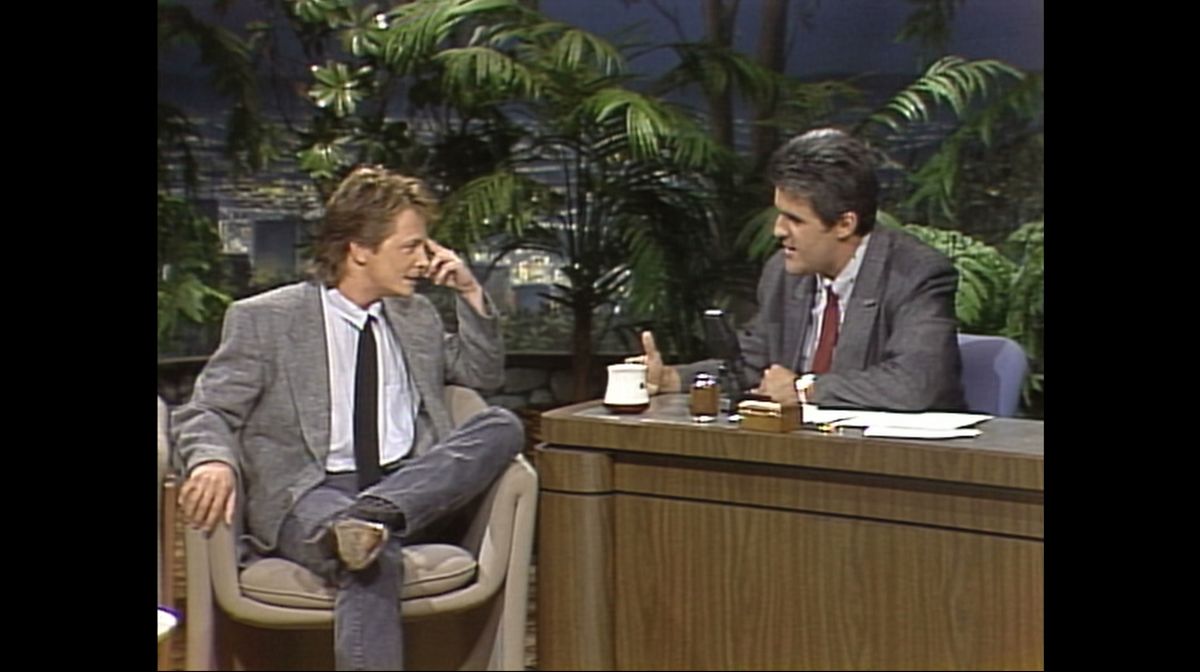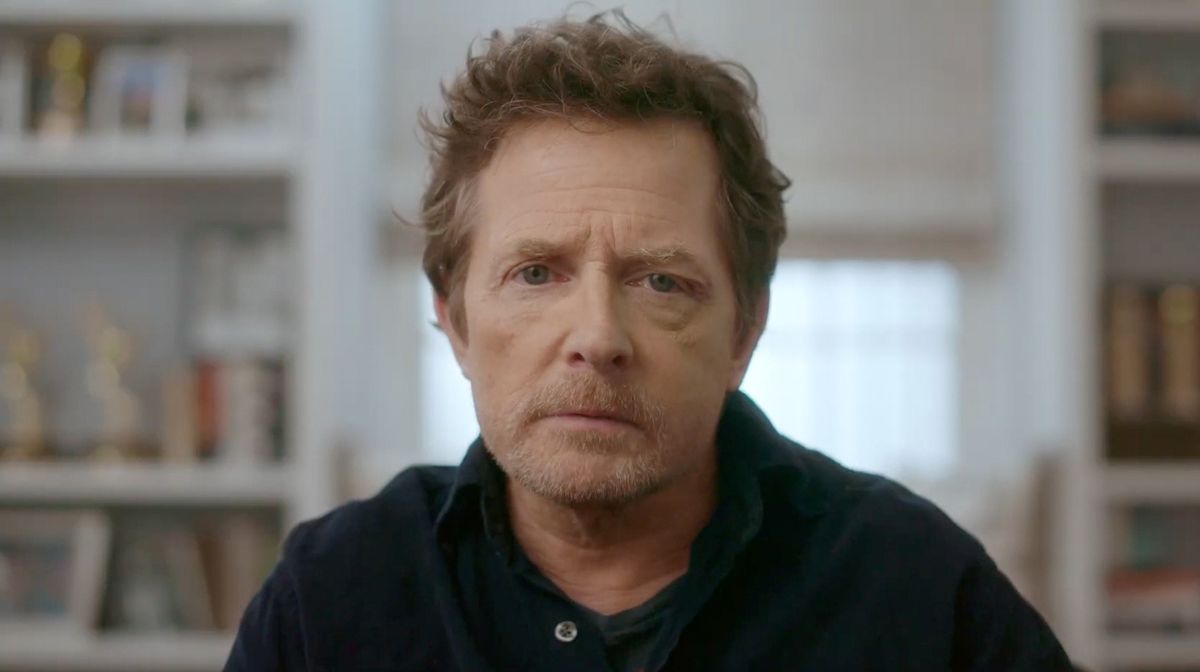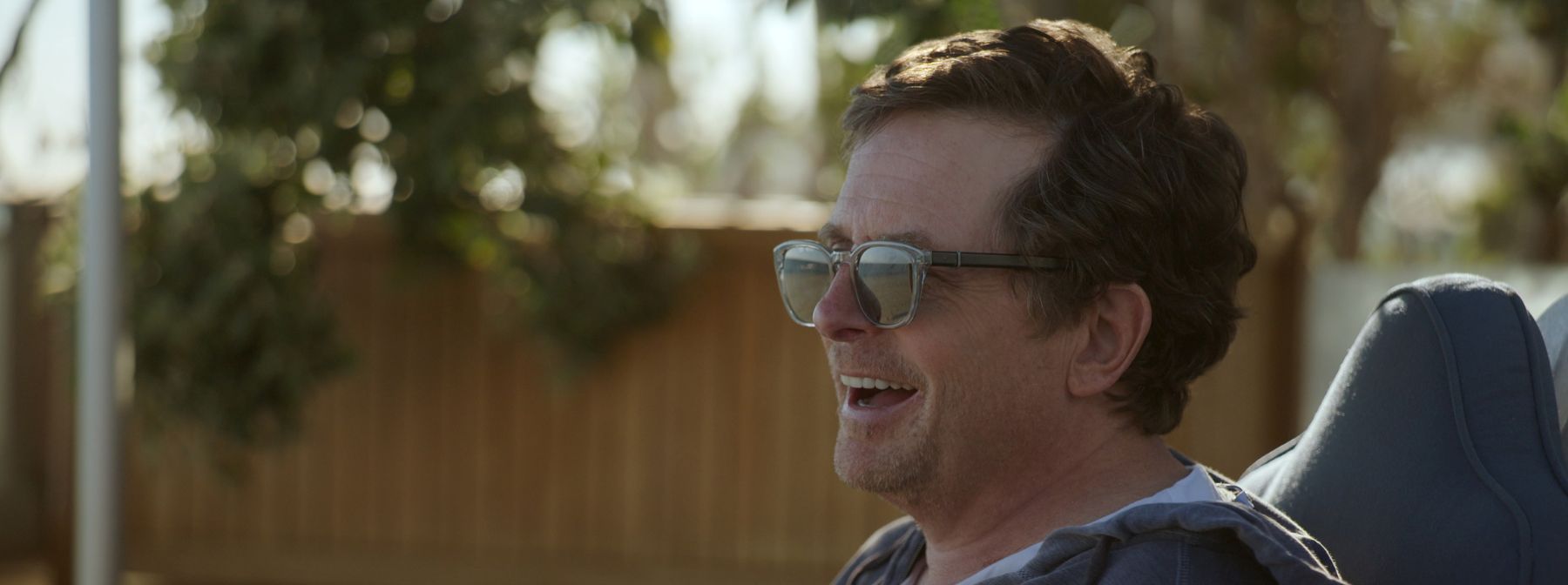
He was diagnosed in the early 1990s when he was just 29 years old, before coming public with his health battle later in the decade and swiftly launching the Michael J. Fox Foundation researching the condition.
He eventually left his starring role in sitcom Spin City after his health worsened, but in the years since has frequently popped up in various supporting parts attempting to expand audience awareness of Parkinson’s, from a self-parodying cameo in Curb Your Enthusiasm, to a recurring role in The Good Wife playing a lawyer who uses his disease to emotionally exploit juries.

When agreeing to star in a documentary about his life (Still: A Michael J. Fox Story, premiering this Friday on AppleTV+), he naturally wasn’t guarded in sharing his story – but watching it back proved to be a more daunting experience than he expected.
He explained to Zavvi: “I wasn’t hesitant to reveal anything, but when I first watched this back, it was shocking to me. I understand the idea of my face going blank, but I don’t always know what it looks like to other people, which didn’t bother me.
“Hearing from people watching this saying they were shocked seeing me walk into a room and stumbling, my response is always: “you think you’re shocked? It absolutely freaks the s**t out of me – I don’t expect to fall over the furniture wherever I go!”

But the actor-turned-activist was vocal that despite this warts-and-all portrayal, director Davis Guggenheim – best known for Al Gore documentary An Inconvenient Truth – managed to avoid exploitation at all costs.
Fox continued: “Davis filmed it so beautifully. It could have been confrontational, but it was cathartic.
“To keep the camera running all that time and to collect those images, it stayed true to the idea I had going into this, that I didn't want to censor anything. In order for this to be the film it is, Davis needed to be the filmmaker that he is and get the footage I didn’t even realise he was getting.

“That was the biggest shock thing to me: how surreal it was to see this part of my life onscreen, but he got it. I’m an open book, and I’m glad I left it open!”
Guggenheim praised the openness of his subject, who he first became interested in making a film about after reading one of his typically candid interviews.
“I was stuck in a rut as a director, feeling really lost looking for my next movie”, he told Zavvi. “But reading this interview with him, I thought that this guy knew how to tell a story; it was a tragic moment he was describing, but in a witty, self-deprecating way.

“My first instinct was that someone else should tell his story, but it dawned on me this is exactly what I wanted to make: a serious story that wasn’t as heavy as my previous films, with the big emotional highs and lows you’d expect from a 1980s movie.
"That’s how I ended up pitching it to Apple, that it needed big songs from that era to soundtrack the journey, from Guns N Roses to Kenny Loggins – and if you told me when I was 20 I’d make a film with someone as uncool as Kenny Loggins on the soundtrack, I’d have gotten in a car to the future and killed myself!”
What made Guggenheim such an unlikely fit for this material was that he wasn’t a massive fan of Fox; although he thinks Back To The Future is a “perfect movie”, he’d largely avoided the rest of his screen work. Luckily, he was working with a super fan in the form of editor Michael Harte, who knew Fox’s filmography inside and out, helping the director achieve his mission of telling the actor’s story almost entirely through scenes from his back catalogue.

Fox’s condition wasn’t a barrier to how far he was willing to go on camera, although it naturally caused some restrictions for the filmmakers.
“His energy surges and wanes, so we must be flexible to that. We were filming an interview one day and he fell asleep, I’ve never had that from anybody in the middle of a shooting day before!
“Losing dopamine in your body is a real thing, so we had to have that flexibility to be ready whenever he was feeling good. If anything, he wanted to go further than we wanted him to”.

The title for the documentary was one of the last pieces of the puzzle, which came courtesy of Guggenheim’s daughter.
“The word “Still” kept coming up throughout, which she found interesting – she insisted whilst I was editing that I end the film with the shot of Michael looking directly to camera, when he’s completely still. It was an intuitive thing; it’s not a sexy title, I gravitate towards more provocative ones, but it was a perfect way of expressing what this story was.”
The only directive Fox ever gave him was the cryptic request for “no violence”. Guggenheim describes this as meaning: “People with Parkinson’s are often described or portrayed with pity, which he didn’t want. He wanted to be understood in a more complex way, he didn’t want the audience to think his life was sad, or that he had balls for enduring.

“I didn’t want to make a movie about Parkinson’s or living with a disease. I wanted to make a more universal story about how a person confronts a massive obstacle”.
I was curious as to what Guggenheim did think the movie was about, considering it does extensively focus on Michael’s activism charity work – it may not be a film about Parkinson’s, but it is an unavoidable factor within this story.

“It’s a very valid question, but take An Inconvenient Truth – it may be about a serious thing and full of slides about climate change, but ultimately, it’s about a man on a journey who wants to share a truth nobody will believe. There were at least ten other climate change movies in that era, using a lot of the same statistics, but at the core it was a personal journey.
“You could say on the surface that’s a climate change movie, like this is a Parkinson’s movie, but I insist that they’re not that and don’t want them to be talked about like that. It’s a movie that just happens to have Parkinson’s in it”.
Still: A Michael J. Fox Movie will be in select cinemas and streaming globally on Apple TV+ on Friday, 12th May.
For all things pop culture, follow us on Facebook, Instagram, Twitter and TikTok.









